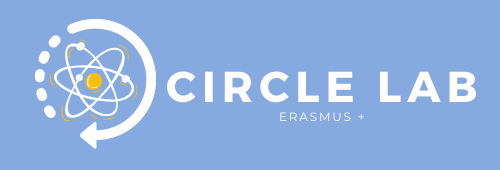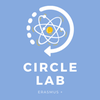Non-formal learning activities build the bridge between sustainable theory and practice

10-05-2022 by Non-formal learning club “WE
Non-formal learning club “WE” is a non-governmental, non-profit organization that born and grew up in the informal environment, non-vocational and non-formal experience-based learning.
Informal learning group activities began in 2010 and the organization was officially established in 2012. Non-formal learning club“WE“ stimulates people to share their experience, knowledge, and skills focused on SDG. For the last several years Non-formal learning club “WE” has been actively working on sustainability topics at different levels – from adults to young people. We organize different non-formal learning activities focused on sustainability that reaches not only to the general public but also makes changes in communities.
Non-formal learning club “WE” as a partner of CIRCLE-LAB project, mainly contribute to IO2 referring to a teacher training program. This Output consists of the development of a training curriculum designed for secondary school teachers. Other partners of this project created 7 modules for secondary school teachers and tutors to educate on the circular economy topic, Non-formal learning club “WE” prepared material based on ESD in Action and brought learning outside the classroom to fill the gaps in modern Chemistry Education.
We encourage teachers to use more non-formal learning activities outside the classroom. Because the subject is not a traditional classroom course that requires students to follow settings of the curriculum, but it also includes the non-formal learning activities that could be fulfilled with excursions, actions, workshops, seminars based on real-life experience.
In Particular, when it comes to the practice of sustainable education, the impNon-formal learning activities are more attractive and engaging for pupils, what is more, mostly sustainability issues are implemented with local initiatives. We have found all different existing non-formal and informal ways/methods that focused on supporting communities to think and live with responsibility for the future, and how to involve in actions not only the school but the whole community.


